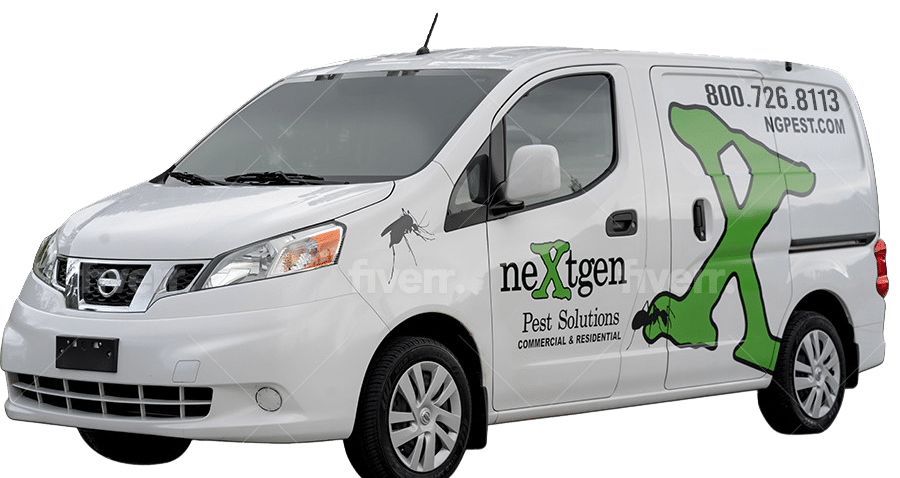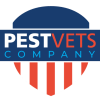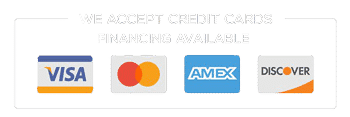Our phone provider is experiencing a temporary outage. Please use the chat option below for a faster response.
More results...
Our phone provider is experiencing a temporary outage. Please use the chat option below for a faster response.
More results...
We Guarantee the Highest Quality Termite Control for you and your Property!

24/7 Same Day Availability
We have same day availability and offer 24 hour emergency service pest control.

Affordable Costs
Our treatments cost less than most of our competitors, with better quality.

Licensed, Bonded, & Insured
Our certified pest control team guarantees your safety and security.

100% Family & Pet Safe
Our pest control options are 100% safe for pets and children.
ProtectionandRelief
Quality Termite Control Professionals Serving Palm beach Gardens, Florida.
You can request same day termite control service and get a free quote in advance. Call Us Today to setup service!
Local & Trusted
We are proud to live and work in the local community.
Same Day Service
Our technicians are fast, and can come the same day you call.

Every year termites cause approximately 5 billion dollars in damage to homes and businesses in the United States. To make matters worse, termite damage is not covered by most homeowners’ insurance policies.
Termite colonies multiply and spread in the same warm and tropical climate that called you to live in Palm Beach Gardens. Don’t ignore a termite infestation. Educate yourself and call a Nextgen Pest Solutions Professional for an inspection and free quote.
With over 20 years of Pest Management experience and an Entomologist on staff, we can eliminate the termites from your home. Nextgen Pest Solutions is a veteran-owned company that invests in top-notch training and education for our termite professionals.
Termites eat 24 hours a day, 7 days a week. Schedule a free inspection today to protect your investment.
West Palm Beach, FL
Contact Us Today
Serving Zip Codes:
33403, 33408, 33410, 33412, 33418, 33420, 33478
Address
475 N Cleary Rd Suite 3
West Palm Beach, FL 33413
Hours
We Are Available
24 Hours a Day
If you are having multiple problems, we also provide these other pest control services:
Roaches
Ants
Termites
Bed Bugs
The Native Eastern Subterranean Termite is the most common Subterranean Termite found in Palm Beach Gardens. They live in the soil and travel through mud tubes into your home to feed on the wood. Subterranean Termites form large colonies and are often present in your home long before you know they are there.
They are aggressive eaters and can cause significant damage in a short period of time. Termites are social insects and the colonies are organized into three different divisions or castes – the workers, soldiers, and alates or reproductives. Each termite performs his duty according to his caste to ensure the survival of the colony.
Two invasive species of Subterranean Termites have found their way into Palm Beach Gardens, Formosan Termites and Asian Subterranean Termites. These two non-native species live in colonies that are about 10x the size of our Native Eastern Subterranean Termite. That means significant damage will occur very quickly if a Formosan Termite or Asian Subterranean Termite colony makes your home their home.
There are two accepted alternatives for treating an established Subterranean Termite colony, a soil barrier treatment or a baiting system. Both methods work by “transfer effect.”
Termites are social insects. They live in close proximity to one another and they even feed and groom each other. Once a termite has ingested or come into contact with a non-repellent termiticide, it will be passed around the colony and the colony will be eliminated. The termiticide can either be applied as a soil treatment or placed in bait stations.
A soil treatment will eliminate the colony faster than bait stations, but bait stations provide long term control and monitoring with minimal pesticide use.
Drywood Termites do not need to have any contact with the soil. In fact, Drywood Termites can get all the moisture and nutrients they need from the wood that they consume and the humid air in your Palm Beach Gardens home.
They make their nests entirely in the wood that they are eating. Drywood Termite colonies send out alates, or swarmers, to create new colonies and expand their population. As the swarmers take flight, they mate and lose their wings.
The mated queen will then find a hole or gap, and this location that she lays her eggs will become a new Drywood Termite colony. Typical nesting spots are gaps in siding, under eaves, under wood roofing shingles, and around window and door frames.
If you wake up one morning to find wings in the windowsill or by the door, do not ignore this sign of Drywood Termites. Although Drywood Termites live in smaller colonies, you may have more than one colony in your Palm Beach Gardens home.
Tenting or fumigation was the only treatment available up until about 25 years ago. Fumigation involves putting a large tent over your home and releasing a gas that penetrates deep into the structure killing every termite under the tent.
This process is expensive, involves a lot of prep work for you the homeowner, and requires that you leave your home for a few days.
If your Drywood Termite colony is accessible and limited in scope, your Nextgen Pest Solutions professional may recommend a No-Tent Treatment. A No-Tent Treatment involves applying termiticide directly into the termite gallery.
When the termites from the colony come into contact with the termiticide they transfer it to rest of the termites and the colony is exterminated. This treatment method is convenient, effective, reasonably priced and guaranteed.
If you suspect termites in your Palm Beach Gardens home or business, you need a thorough inspection from a well-trained termite professional. Nextgen Pest Solutions does not believe in a one treatment fits all approach. Every situation is unique, with many different variables.
Call today for a free inspection and to discuss your home or business with our experienced termite specialist. While you weigh your termite options, visit John D. Macarthur State Park, the Palm Beaches only State Park.
Common Questions Our Customers Ask
This can range from $200 to thousands of dollars. An average home treatment costs about $800 to $1200. To narrow down the cost here are some questions you will need to know the answers to: Are the termites in a single piece of furniture or the entire home? Are they subterranean or drywood termites? Does the entire home need treated? Start with a professional inspection to help narrow down the treatment type and cost.
Termites get into your home by either tunneling up from the ground beneath or by swarming. Swarming typically happens once a year for most large termite colonies. The colony produces special termites with wings called swarmers (also known as alates or reproductive). These swarmers are males and females. They fly out of the colony and look for a place to start a new colony. Most will die and not be successful. However, if they successfully pair up and find a suitable place for a new colony in your home then you may have a problem.
No termites do not affect people. However, sometimes termites are a sign of hidden moisture issues that can also be conducive to health issues such as mold.
Termites can be positively identified from samples of live/dead termites, termite frass (termite poop), or by damage to the wood itself. A professional inspection is the best way to identify which type of termites (if any) that you have and they best treatment method.
Most termites are ¼” to ½” long.
This varies by species, but common termite species are black, brown, tan, or reddish-brown.
Tent fumigation prices are based on the cubic feet of volume under the tent. Prices typically range from $1000 for a small home to well over $10,000 for a larger structure such as a condominium or commercial building. This is much more expensive to other termite control methods such as termite baiting or “No-Tent” treatments. The key is to have a professional inspection to properly identify the type of termite and the extent of the infestation.
Subterranean termites typically live in the ground, tunnel up into your home to feed, and then return to the ground. The most common treatments are liquid treatments or termite bait station outside along the perimeter of your home. Active areas inside your home may also be spot-treated to speed up control.
Drywood termites workers do not leave the wood they are eating and often travel no more than a foot or so. The key for drywood termite control is to get a treatment to them because they will not move to the soil to contact a treatment like subterranean termites do. Our preferred treatments for drywood termites are foam injection directly into the termite tunnels or fumigation. We suggest having a professional inspection to properly identify which kind of termites you have in your walls.
Flying termites (also called swarmers or alates) are the life stage of termites that fly out of a colony once a year to establish a new colony elsewhere. Most will die before this happens leaving you with gross piles of dead termites on window sills and around lights. Any bug spray, or even a vacuum, will kill these flying termites, but this is a sign of a bigger problem . . . . . a large colony hiding in the walls. A professional inspection and treatment is needed to ensure the entire termite colony eliminated and not just the flying termites.
First, this depends on the type of termite. There are two types of termites (subterranean and drywood). Subterranean termites are highly mobile and typically move in and out of your home. Baits or liquid treatments around the exterior of your home often eliminate all the subterranean termites inside the home also. However, we prefer to also treat all active areas just to be safe. For drywood termites, it is a little more difficult. Drywood termites workers do not leave the wood they are eating and often travel no more than a foot or so. The key for drywood termite control is to get a treatment to them because they will not move to the soil to contact a treatment like subterranean termites do. Our preferred treatments for drywood termites are foam injection into the termite tunnels or fumigation. We suggest having a professional inspection to properly identify which kind of termites you have in your walls.
There are numerous treatment options for treating termites. There are both natural and chemical options. Natural options may be limited depending on what kind of termites you have (drywood or subterranean) and where the termites are located (easily accessible vs hidden in a wall). We do recommend a professional inspection to identify the type of termites you have and help choose the best option for your home. Here is an overview of some natural options.
We Treat These Pests & Many More
Read What Our Local Pest Control
Customers Are Saying



Our Top Deals
You work hard for your money and we want you to keep it! Use these money saving coupons when you sign up for our pest control services!
Get a Free Pest Control Quote Now!
Our main Georgia location is: 100 Prospect Pl Suite B, Alpharetta, GA 30005. Phone: 470-375-0496
Our professional pest control operators are dedicated to taking care of your pest control, exterminator, and wildlife removal needs in the greater Atlanta, Georgia area and the surrounding towns and cities of: Cumming, Sandy Springs, Roswell, Johns Creek, Alpharetta, Marietta, Brookhaven, Smyrna, Dunwoody, Gainesville, Milton, Lawrenceville, Duluth, Chamblee, Decatur, Suwanee, Norcross, Winder, Buford, Flowery Branch, Oakwood, Woodstock East Point and Dawsonville.
In addition, we provide pest control services in Martin and Palm Beach Counties in Florida including the towns and cities of Boca Raton, Belle Glade, Boynton Beach, Delray Beach, Greenacres, Hypoluxo, Juno Beach, Jupiter, Lantana, Lake Park, Lake Worth, Loxahatchee, Palm Beach Gardens, Riviera Beach, Royal Palm Beach, Tequesta, West Palm Beach, Wellington, and Fort Lauderdale.
We also serve the West Coast of Florida including Pinellas, Hillsborough, and Pasco County, Florida including the towns and cities of Tampa, Clearwater, St. Petersburg, Largo, Palm Harbor, Pinellas Park, Dunedin, East Lake, Tarpon Springs, Seminole, Safety Harbor, Oldsmar, Gulfport, Bardmoor, and South Pasadena.
We also serve the Birmingham, Alabama area of Jefferson County.
If you don’t see your location please contact us as we service many more areas in Alabama, Florida, and Georgia.



2024 Nextgen Pest Solutions All rights reserved
Login | Knowledge Base | Privacy Policy | Terms | Coronavirus | Site Map | Accessibility
*Bed bug and wildlife coupons on the website apply only to new customers signing up for full home treatment over $850. Pest control coupons apply to recurring service only.